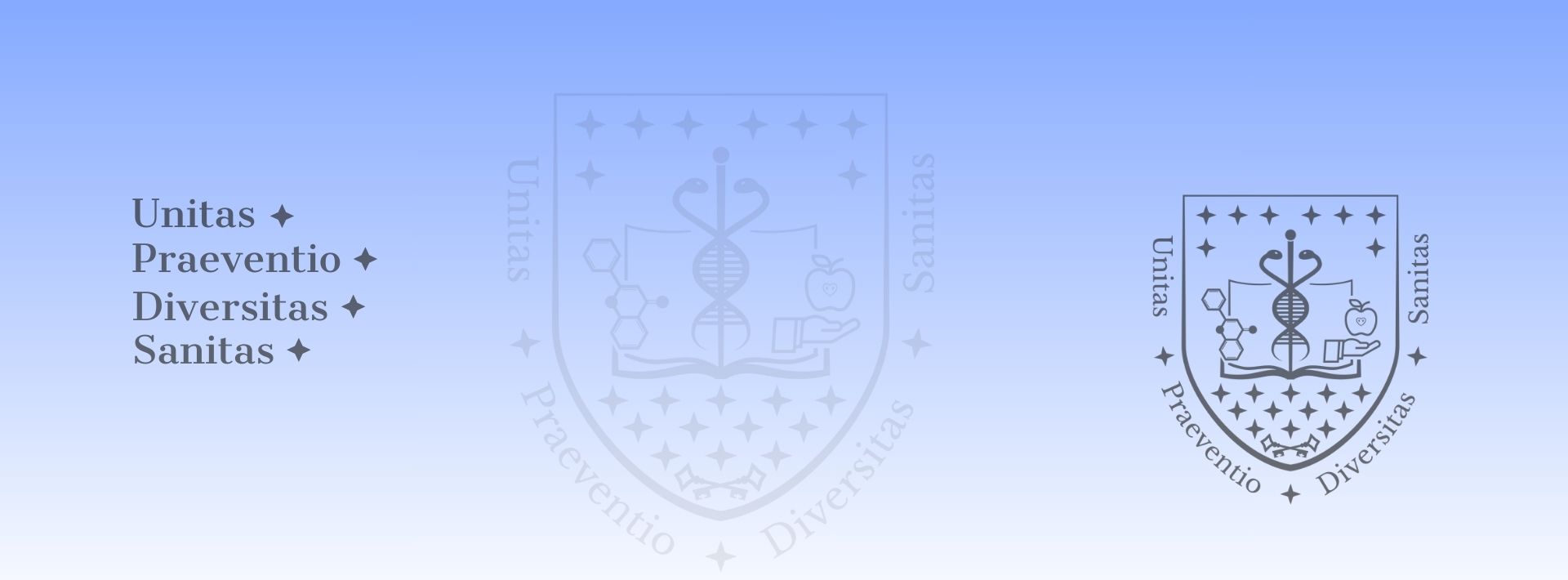Daten
Offizielle Daten in der Fachveröffentlichung für das folgende akademische Jahr: 2024-2025
Lehrbeauftragte/r
-
Varga Csaba (Népeg)
professor,
Department of Public Health Medicine -
Semesterwochenstunden
Vorlesungen: 7
Praktika: 7
Seminare: 0
Insgesamt: 14
Fachangaben
- Kode des Kurses: OAA-KET-T
- 1 kredit
- General Medicine
- Basic modul
- autumn
OAA-AED-T finished
Zahl der Kursteilnehmer für den Kurs:
min. 5 – max. 24
Thematik
The aim of the course is the introduction into the environmental related health impacts and with a particular focus on the prevention.
Vorlesungen
- 1. Ecology - Varga Csaba (Népeg)
- 2. Global warming – climate change - Bérczi Bálint Dániel
- 3. Outdoor air pollution - Szabó István (Népeg)
- 4. Indoor air pollution - Szabó István (Népeg)
- 5.
Health impacts of water and soil
- Márovics Gergely Péter - 6. Contaminants of the anthropocene I. - Szabó István (Népeg)
- 7. Contaminants of the anthropocene II. - Szabó István (Népeg)
Praktika
- 1. Water chemistry laboratory practical I. - Szendi Katalin
- 2. Water chemistry laboratory practical II. - Szendi Katalin
- 3. Water microbiology laboratory practical I. - Szendi Katalin
- 4. Water microbiology laboratory practical II. - Szendi Katalin
- 5. Physical exposures: Ionizing, non-ionizing radiations. - Szendi Katalin
- 6. Radiation hygienic laboratory practical - Szendi Katalin
- 7. Aerobiology. - Szendi Katalin
Seminare
Materialien zum Aneignen des Lehrstoffes
Obligatorische Literatur
Vom Institut veröffentlichter Lehrstoff
Educational material uploaded on PotePedia.
Skript
Empfohlene Literatur
Tompa (editor): Basic Principles of Public Health, ISBN: 978 963 9879 13 3
Voraussetzung zum Absolvieren des Semesters
Absence of 2x45 minutes from practical is acceptable. Above this the semester cannot be accepted.
In the 8th semester students have to do a final exam of Public Health, for it they need completed courses, which are the followings: The basics of Disease Prevention (OAABMA), General Epidemiology and Demography (OAAAED), Environmental Health (OAAKET), Preventive Medicine (OAPNEO), Detailed Epidemiology (OAKREP), Occupational Hygiene and Occupational Medicine (OAKMFO).
Semesteranforderungen
-
Möglichkeiten zur Nachholung der Fehlzeiten
Students may attend the practical of another group on the same week. Pre-consultation with practical leader is needed.
Prüfungsfragen
- Rely on material from lectures and seminars
- Educational material uploaded on PotePedia
Public Health 3 - topics for the oral exam
1. Ecology 1, Organization levels, Gaia theory, competition, niche-theory
2. Ecology 2, Population in biology, ecosystem, food-chain, diversity
3. Ecology 3, Interactions among populations, Lotka-Volterra model, population growth
4. Ecology 4, Human ecology, Special situation of the human population(s) in the ecosystem
5. Ecology 5. Meadows’ models, global problems, examples from the game theory
6. The etiological factors of global warming.
7. The direct health related effects of global warming.
8. The indirect health related effects of global warming.
9. The effect of climate change on biodiversity.
10. Socioeconomic effects - The future situation of food and water: Access and Safety.
11. Epidemiology of air pollution
12. Outdoor air pollution 1, Elements of air pollution. Atmospheric transmission.
13. Outdoor air pollution 2, The role of the ozone layer
14. Outdoor air pollution 3, Major pollutants
15. Outdoor air pollution 4, Residential solid fuel combustion
16. Outdoor air pollution 5, Smogs
17. Indoor air pollution 1, Major pollutants
18. Indoor air pollution 2, carbon-monoxide
19. Indoor air pollution 3, Biological pollutants
20. Indoor air pollution 4, Sick building syndrome and Building related illness
21. Water 1, Global water resources, water demands, water balance
22. Water 2, Water 2, Hydrological cycles
23. Water 3, Essential ions in drinking water
24. Water 4, Water pollutants/contaminants: classification, effects
25. Water 5, The Minamata disaese; arsenic in drinking water
26. Water 6, Secondary contaminants
27. Water 7, Water-borne epidemics, crucial infectious agents
28. Water 8, Water-soluble forms of iodine, effects; iodine in water and soil
29. Hazardous wastes, applied tests; Self-purification of waters
30. The scope of environmental-health. Man and the environment.
31. The IARC monograph programme.
32. Basics of ecotoxicology. Circulation of pollutants.
33. Stockholm convention and POP compounds
34. DDT
35. PCBs and dioxins
36. Asbestos
37. Glyphosate
38. Systemic insecticides and honeybees
39. Electromagnetic radiations and their health effects and prevention
40. Major polluting radioisotopes and their health effect
41. Aerobiology
42. Significance and measurement of UV radiation (laboratory practice)
43. Significance and measurement of radon exposure (laboratory practice)
44. Dose-response curves, thresholds
45. Water microbiology (laboratory practice): applied techniques and parameters used for evaluation
46. Water chemistry I (laboratory practice): nitrogen forms, hardness
47. Water chemistry II (laboratory practice): chlorine in water, pH
Prüfer
- Bérczi Bálint Dániel
- Gyöngyi Zoltán
- Kiss István Zoltán (Népeg)
- Szabó István (Népeg)
- Szendi Katalin
- Varga Csaba (Népeg)
Praktika, Seminarleiter/innen
- Bérczi Bálint Dániel
- Gyöngyi Zoltán
- Szendi Katalin
